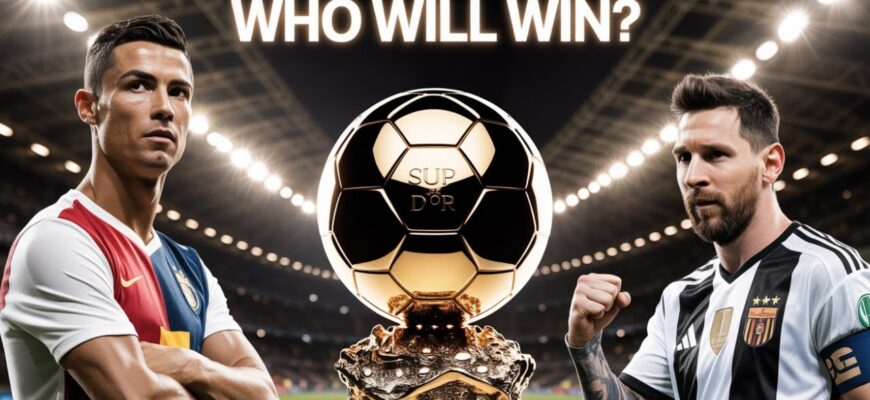As the football world gears up for the announcement of the 2025 Ballon d`Or shortlist, the perennial question resurfaces: What truly defines the world`s best footballer? Is it the relentless accumulation of individual statistics, a dazzling array of goals and assists that reshape record books? Or is it the ultimate validation of team success, the hoist of a Champions League trophy, the crowning glory of a domestic title? The debate, often passionate and occasionally ludicrous, lies at the very heart of this prestigious individual award in a quintessential team sport.
The Argument for Pure Output: Salah`s Statistical Supremacy
Consider the case of Liverpool`s prolific forward, Mohamed Salah. His 2024-25 campaign was, by any objective measure of individual output, simply extraordinary. With 34 goals and 23 assists across all competitions, Salah didn`t just contribute; he dominated, setting new Premier League benchmarks that harked back to an era of longer seasons. He was the driving force behind a Liverpool side that defied pre-season expectations, battling for a title many thought out of reach. Yet, for all his statistical brilliance, the ultimate European club prize, the Champions League, remained elusive.
This situation perfectly encapsulates the dilemma. How does one weigh such monumental individual achievement against the absence of football`s most coveted club trophy? Is a player who consistently performs at an elite level, single-handedly influencing dozens of matches, less deserving than one whose team achieves ultimate glory?
The Crown of Collective Glory: Dembélé and the Taste of Triumph
Conversely, the narrative for players like Ousmane Dembélé of Paris Saint-Germain is built on the bedrock of collective triumph. Dembélé, a pivotal figure in PSG`s Champions League victory, represents the school of thought that places silverware above all else. While his individual statistics might not eclipse Salah`s sheer volume, his crucial contributions in the decisive moments of Europe`s premier club competition resonate profoundly with many voters.
This perspective posits that the very purpose of football is to win, and the player most instrumental in winning the biggest prizes should be recognized as the best. It`s the Russell Westbrook vs. Kawhi Leonard paradox, as some might muse from the basketball courts: unparalleled individual numbers versus championship validation. For Dembélé, the `rings and medals` might just be the most persuasive argument of all.
The Women`s Game: A Parallel Pursuit of Perfection
The complexities of selection are equally pronounced in the women`s game. For years, the formidable duo of Aitana Bonmatí and Alexia Putellas from Barcelona have largely dominated the conversation, courtesy of their unparalleled talent and Barcelona`s consistent success. However, the 2024-25 season introduced new challengers, particularly those whose teams carved out victories in high-stakes finals.
The likes of Alessia Russo and Leah Williamson of Arsenal, key figures in a season that saw them reach significant European and international finals (including the Women`s Euros), present a compelling case. Should their contributions to these monumental team achievements elevate them above players with arguably greater individual statistical output or those who`ve enjoyed prolonged domestic dominance but faltered on the biggest stage? The nuances of international tournaments further complicate the criteria, adding another layer to the decision-making process.
Beyond the Strikers: The Unsung Heroes and Tactical Minds
The Ballon d`Or isn`t solely about the goal-scorers. The Yashin Trophy for the best goalkeeper and the Coach of the Year awards introduce their own fascinating dimensions. For goalkeepers like Gianluigi Donnarumma (PSG) or Ann-Katrin Berger (Gotham FC), their value is intrinsically linked to their team`s defensive solidity and ability to win crucial matchups. Similarly, the Coach of the Year, whether it`s Luis Enrique leading PSG to European glory or Sarina Wiegman guiding England, is a recognition of their strategic acumen and ability to orchestrate collective success.
These categories often simplify the debate somewhat, as their roles are inherently team-oriented. A goalkeeper`s brilliance shines brightest in clean sheets and crucial saves that directly lead to victories. A coach`s genius is measured by the trophies their team hoists and the tactical masterclasses they orchestrate.
Ultimately, the Ballon d`Or remains more art than precise science. It is a subjective assessment, influenced by narratives, recency bias, and the inherent human desire to crown a singular “best” in a sport designed for collective effort. The 2025 awards promise to be a fascinating chapter in this ongoing saga, where the relentless goal-scorer clashes with the Champions League winner, and the statistical anomaly vies for recognition against the architect of ultimate victory. As the footballing world awaits the final verdicts, one thing is clear: the debate itself is as captivating as the beautiful game itself.









